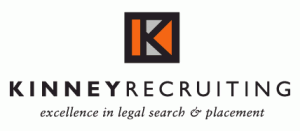Among the lessons for law firms that came out of the recession of 2008 was that diversity and inclusion initiatives suffer during an economic downturn, says Bryan Parker, chief executive officer of alternative legal services provider Legal Innovators.
It took a decade before the numbers of Black and LatinX attorneys at large law firms returned to pre-recession levels, Parker told me. “We are committed to working with leaders in the law to address diversity and inclusion at every stage of the talent recruitment and development process, to ensure this doesn’t happen again.”
Bryan Parker
Last December, I wrote about the launch of Legal Innovators, a company that aims to enhance diversity and inclusion in larger law firms and legal departments by changing how lawyers are recruited, hired, priced and trained.
Now, in recognition of the staffing challenges legal organizations face as a result of the coronavirus crisis, and with the goal of avoiding a repeat of 2008, the company is introducing two services designed to help — one a free assessment of an organization’s diversity and inclusion and the other a staffing program to help organizations meet shorter-term needs for attorneys in high-demand practice areas.
Free Diversity Assessment
The company is providing its Diversity and Inclusion Talent Assessment at no cost to law firms and legal departments. It will review an organization’s processes, procedures, and cultural approach, and conduct stakeholder interviews and anonymous surveys.
Within 30 days, Legal Innovators will deliver a written report that will address recruiting, development, retention, promotion, and enablement of legal talent, as well as recommendations to measure and track performance against metrics.
If the assessment identifies a need, the organization can optionally work with Legal Innovators to be matched with diverse junior legal talent.
I asked Parker why a firm should have his company perform this assessment rather than do it itself.
“Why does a lawyer not have himself for a client?” he replied. “There is something about a fresh set of eyes coming in and being dispassionate.”
Beyond that, he said, he and his cofounder Jonathan L. Greenblatt, a longtime, now-retired partner at Shearman & Sterling, are large-firm veterans who understand the staffing and diversity issues firms face.
Flexible-Term Lawyers
Legal Innovators standard model is recruit diverse law school graduates and match them for terms of one-to-two years with law firms and legal departments. Legal Innovators employs them during that period and provides training and mentorship.
Under the service announced today, Legal Innovators will provide these attorneys for shorter terms of three-to-six months, with the attorneys working either remotely or in an organization’s offices.
The service is targeting high-demand practice areas where firms and legal departments are likely to need additional staffing, including regulatory, bankruptcy, restructuring and litigation.
The lawyers will come from diverse and non-diverse backgrounds and have initial training rele vant to support these high-demand business areas, Legal Innovators says.
After the initial term, employers would be free to continue to work with Legal Innovators for the standard, longer-term duration, or to hire the lawyers permanently.
In Parker’s view, these initiatives are win-wins for both the firms that participate and the lawyers who get placed.
The data is clear that more diverse firms are more profitable firms, he says, and in the times in which we find ourselves, diversity is both a moral imperative and a business imperative.
For the lawyers who get placed in firms or legal departments, this is an opportunity to get valuable experience that can fuel their careers. And for some, it could lead to permanent placements.
Legaltech Week 6.5.20: Guest Bryan Parker Joins the Panel for A Conversation on Diversity


















 Kathryn Rubino is a Senior Editor at Above the Law, and host of
Kathryn Rubino is a Senior Editor at Above the Law, and host of